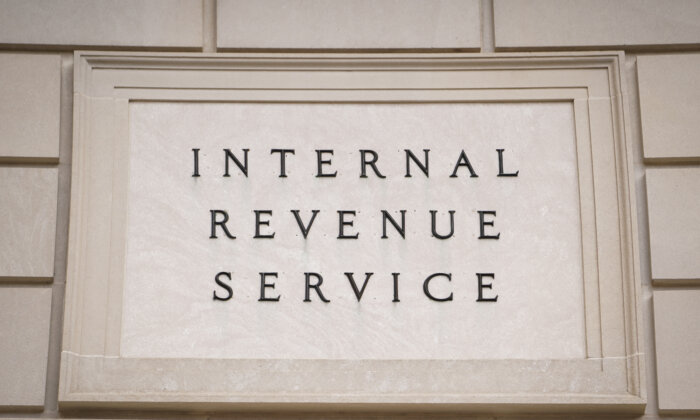


The Internal Revenue Service (IRS) is sounding the alarm, urging businesses to promptly review their eligibility for a pandemic-era tax credit and take action before a March 22 deadline or face potential penalties.
The IRS on Jan. 25 renewed calls for employers to assess their qualifications for the Employee Retention Credit (ERC), a refundable tax credit designed for businesses that continued paying employees during COVID-19 shutdowns.
A large number of improper ERC claims were pushed by predatory promoters on unwitting businesses, with an investigation by the IRS Criminal Investigation (IRS-CI) division earlier uncovering over $2.8 billion of potentially fraudulent ERC claims.
Because of the large number of wrongly filed ERC claims and the predatory promotions surrounding them, the IRS has been working on ways to get taxpayers who incorrectly claimed the credit to pay it back with minimal penalty.
One such initiative was a voluntary disclosure program, first unveiled in December 2023, which lets employers who wrongly filed for the ERC get right with the tax authorities by admitting to the error.
In exchange for volunteering this information, businesses get to keep 20 percent of the incorrectly received credits, and they won’t be charged any interest or penalties on the remaining 80 percent that they repay.
In its latest Jan. 25 alert, the tax agency said there’s a March 22, 2024, deadline for employers to apply for the voluntary disclosure program or face possible penalties.
“We saw aggressive marketing around this credit, and well-intentioned businesses were misled into filing claims,” IRS Commissioner Danny Werfel said in a statement.
“There’s a limited time window available for these businesses to voluntarily come in and avoid future issues.”
There are several other initiatives regarding the wrongly collected tax credit.
Withdrawal Program
Another program the IRS rolled out last October was a special withdrawal process that lets businesses that filed a questionable claim withdraw it and avoid the risk of costly penalties and interest.The withdrawal option lets employers avoid future problems by withdrawing pending ERC claims that they suspect they may have been tricked into filing and that have not yet been paid.
Even if a business has received the ERC refund check but hasn’t yet cashed or deposited it, it can still withdraw its claim.
The IRS has warned that a business or tax-exempt group could find itself in a much worse cash position if it has to pay back an improperly claimed tax credit than if it had never claimed it in the first place.
Claims that are withdrawn will be treated by the IRS as if they were never filed, and the agency won’t impose penalties or interest.
“The IRS continues to see a large number of employers interested in the withdrawal program, with more than $167 million from pending applicants withdrawn through mid-January,” the IRS said in the Jan. 25 statement.
Increased Compliance Activity
The IRS also said in the recent alert that it is continuing to ramp up its compliance activity in various areas, including with respect to the tax credit.Thousands of audits are in the pipeline, the IRS said, as well as both civil and criminal investigations.
“Promoters are not off the hook” for pushing ERC claims on unwitting businesses, the IRS said.
The IRS said it currently has nine open civil investigations and another 123 under review. One condition of participation in the voluntary disclosure program is that participants must disclose the names of promoters so the IRS can go after them.
As regards criminal investigations conducted by IRS-CI, the agency’s criminal investigations unit, there have been 352 launched as of Dec. 31, 2023.
Eighteen of the 352 investigations have led to federal charges, with 11 convictions and four sentencings, with an average sentence of 21 months, per the IRS.
“During the COVID-19 pandemic, tax credits and loans were extended to struggling businesses. We’ve seen many of these COVID-relief programs and credits misappropriated – sometimes knowingly and in other instances not,” IRS-CI Chief Jim Lee said in a statement.
IRS-CI, which has 20 field offices across the country, boasts a nearly 90 percent conviction rate.
Special Letters
The IRS also said that it plans to send out more letters to taxpayers notifying them of disallowed ERC claims, building on an initiative in December that saw 20,000 such letters sent out.Last month’s mailing involved entities that didn’t exist or didn’t have employees on payrolls, meaning they failed to meet the basic eligibility criteria for the tax credits.
The IRS said it’s now planning another distribution of a different set of letters to thousands of ERC recipients who incorrectly claimed credit or claimed too much.
“These notices inform recipients that the IRS will recapture the erroneously claimed ERC payment through normal tax assessment and collection procedures,” the IRS stated.
After these letters (which are for tax year 2020) are distributed, the IRS will send more recapture letters in the spring for the tax year 2021.


